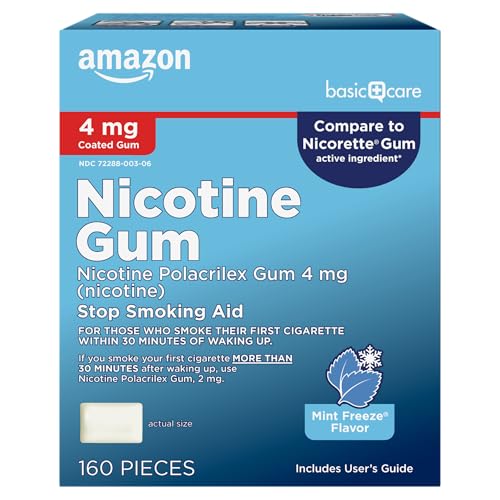Secondhand smoke poses serious health risks for you and others nearby, including respiratory problems, heart disease, and even cancer. Exposure happens in outdoor and shared spaces, often without you realizing it. Quitting smoking or encouraging others to do so can greatly reduce these dangers and create a healthier environment. Taking steps to limit exposure not only protects vulnerable groups like children and pregnant women but also fosters a courteous, smoke-free community. Discover how your actions can make a difference.
Key Takeaways
- Secondhand smoke contains harmful chemicals that can cause respiratory issues, heart disease, and lung cancer in nonsmokers.
- Exposure occurs in outdoor and shared spaces, affecting vulnerable groups like children and pregnant women.
- Quitting smoking reduces chemical release and protects loved ones from health risks associated with secondhand smoke.
- Advocating for smoke-free policies and politely requesting smokers to step away promotes healthier community environments.
- Individual efforts and awareness support policies that limit exposure, fostering spaces where everyone can breathe safely.

Have you ever wondered how secondhand smoke affects those around smokers? It’s a common concern, especially when you’re trying to enjoy a moment outdoors or in a shared space. Secondhand smoke isn’t just unpleasant; it poses serious health effects for everyone nearby. When you’re exposed, you risk inhaling many of the same harmful chemicals that smokers breathe in directly. These substances can cause respiratory problems, increase the risk of heart disease, and even lead to lung cancer over time. Children, pregnant women, and people with existing health issues are particularly susceptible. Understanding these health effects motivates many to seek smoking cessation, both for their own health and to protect others.
Secondhand smoke harms everyone nearby, causing serious health risks like respiratory issues and increased disease risk.
If you’re a smoker, you might be aware of the damage secondhand smoke causes to those around you. But you might also feel caught between your habits and your concern for others. Quitting smoking can considerably reduce the health risks associated with secondhand smoke, not just for your loved ones but for yourself as well. Smoking cessation isn’t always easy, but it’s one of the most effective steps you can take to improve your health and the health of those around you. When you stop smoking, you immediately cut down the amount of harmful chemicals released into the environment, reducing the exposure of others to secondhand smoke. This not only benefits your loved ones but also helps create a healthier community environment overall. Additionally, efforts to reduce smoking in public spaces have proven effective in decreasing secondhand smoke exposure.
For nonsmokers, understanding the importance of smoking cessation can be empowering. It means advocating for smoke-free zones and politely requesting smokers to step away when they’re in close proximity. Such actions show respect and awareness of the health effects of secondhand smoke. Many workplaces, public spaces, and even homes are adopting stricter policies to limit exposure, recognizing that secondhand smoke is a preventable health hazard. Supporting these policies and encouraging friends and family to quit smoking can make a considerable difference. It’s about fostering a culture where health and courtesy go hand in hand, ensuring everyone can breathe easier.
In the end, addressing secondhand smoke requires both individual efforts and community awareness. Quitting smoking reduces the health effects of secondhand smoke on everyone around you, and it’s an essential step toward building a healthier environment. Whether you’re a smoker trying to quit or a nonsmoker advocating for cleaner air, recognizing the importance of smoking cessation is key. By taking these actions, you help protect vulnerable populations and promote a culture of respect and health consciousness. It’s a shared responsibility that benefits everyone, creating spaces where everyone can breathe freely and safely.

MEGAWISE H13 HEPA Air Purifier for Home, Bedroom & Office | 3-Stage Filtration for Smoke, Dust, Pet Dander | Quiet & Ozone-Free
Efficient Air Filtration: Equipped with a True H13 HEPA filter, this unit captures up to 99.97% of airborne…
As an affiliate, we earn on qualifying purchases.
As an affiliate, we earn on qualifying purchases.
Frequently Asked Questions
How Does Secondhand Smoke Affect Children Differently Than Adults?
You should know that secondhand smoke affects children more severely than adults because of their child vulnerability and developmental sensitivity. Their lungs and immune systems are still developing, making them more prone to respiratory issues, asthma, and infections. Exposure can also impact brain development. As a result, children are at higher risk for long-term health problems, so avoiding secondhand smoke around them is essential for their safety and well-being.
Are There Legal Restrictions on Smoking in Multi-Unit Housing?
Think of your home as a sanctuary, and smoke-free policies act like walls to protect it. Many places have legal restrictions on smoking in multi-unit housing, ensuring everyone’s comfort and safety. As a tenant, your rights often include the ability to request smoke-free environments, and landlords may implement policies to limit secondhand smoke. Check local laws and your lease agreement to understand your rights and help maintain a healthy living space.
Can Secondhand Smoke Cause Long-Term Health Issues?
Yes, secondhand smoke can cause long-term health issues, including lung damage and respiratory illnesses. When you’re exposed, the harmful chemicals can irritate your lungs, leading to chronic conditions like asthma or bronchitis. Over time, this exposure increases your risk of serious diseases such as lung cancer. Protect yourself by avoiding smoky environments and advocating for smoke-free policies to reduce these health risks.
What Are Effective Ways to Politely Ask Someone to Stop Smoking Nearby?
To politely ask someone to stop smoking nearby, use respectful communication by saying, “Excuse me, could you please smoke elsewhere? I’d appreciate a polite refusal if you’re uncomfortable.” Maintain a calm tone and use “please” and “thank you” to show respect. This approach helps you assert your needs while keeping the conversation courteous, making it more likely they’ll understand and comply without feeling offended.
How Does Secondhand Smoke Impact Pets’ Health?
Like a silent villain lurking in the shadows, secondhand smoke can harm your pets’ health. Smoke exposure irritates their respiratory system, causing coughing, wheezing, and even long-term lung issues. Your furry friends depend on clean air, just as we do. By avoiding smoking indoors, you safeguard their pet respiratory health and ensure they breathe easier. Remember, their wellbeing is in your hands—choose fresh air over smoke for their sake.

Amazon Basic Care Coated Nicotine Polacrilex Gum 4 mg, Ice Mint Flavor, Stop Smoking Aid, 160 Count
ACTIVE INGREDIENT IN NICOTINE GUM: This product from Amazon Basic Care contains nicotine polacrilex, stop smoking aid; compare…
As an affiliate, we earn on qualifying purchases.
As an affiliate, we earn on qualifying purchases.
Conclusion
Remember, by avoiding secondhand smoke, you become a guardian of health, much like a lighthouse guiding ships safely ashore. Your choices illuminate a path free of danger, shielding loved ones from unseen storms. Just as a silent guardian stands watch, your courtesy can create a safer, healthier space. Embrace this responsibility, and let your actions be a beacon of care, ensuring everyone can breathe easy, free from the shadows of smoke’s silent threat.

Obacle Skull Face Mask Half for Dust Wind UV Sun Protection Seamless 3D Tube Mask Bandana for Men Women Durable Thin Skeleton Mask Motorcycle Riding Bike Sports Festival (Smoking and Earring Skull)
100% POLYESTER MICROFIBER & Protect From Sun Dust Wind Sand: High quality soft and comfortable mask, NOT cheap…
As an affiliate, we earn on qualifying purchases.
As an affiliate, we earn on qualifying purchases.

Zep Smoke Odor Eliminator Aerosol – 16 Ounce (Pack of 4) ZUSOE16 – Eliminate Cannabis (Marijuana) and Tobacco Odors
Neutralizes smoke, pet, food, cigarette and other smoke and mal odors
As an affiliate, we earn on qualifying purchases.
As an affiliate, we earn on qualifying purchases.










